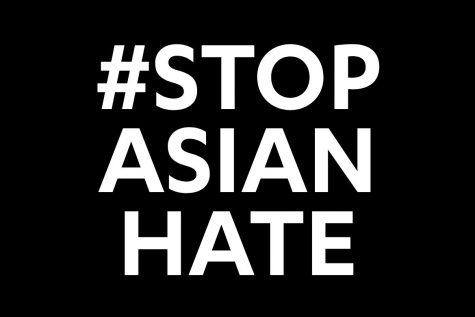The Beauty of Looking on the Darkside: How Pessimism is More Valuable Than Many Realize
This is another in a series of Guest Editorials written by Pinole Valley High School students.
“Everything has beauty, but not everyone can see it.” — Confucius
I have always believed that there is at least some validity to everything in our lives. Everything serves at least some purpose that can assist us in achieving a higher level of living. However, there have been many times when I saw people avert their eyes from the beauty of something. Time and time again, people bombard me with phrases such as:
“Stop being a Debby Downer.”
“Dude, you need to be a bit more optimistic.”
“I feel like I am being sucked into a black hole of pessimism whenever you speak.”
Variations of these phrases have plagued me throughout my life. Many more have, and continue to, criticize my more pessimistic outlook on things. Since forever ago, my friends and family have always pushed me to be on the more optimistic side of things, a glass-half-full kind of guy. But all this pushing to be someone I was not made me think. Is there anything wrong with being pessimistic? How come people don’t see the value or beauty in it?
The treatment of my more pessimistic outlook says a lot about our modern society and its perception of the topic. Typically, we learn that pessimism is an inherently harmful thing to be avoided. It brings you down and others down with it. How many stories have you watched, read, or heard that had the hero possess a gung ho attitude, boundless confidence, and/or optimistic outlook? How many stories had a villain who had cynicism, skepticism, and/or pessimism inherent to their character? Yes, an overabundance of pessimism is dreadful, just like an overabundance of anything. But our society completely demonizes the skepticism and doubt inherent to our hearts and treats it like that one racist uncle you try to avoid at family gatherings. Pessimism is not the racist uncle—it’s so much more than that—and it is wrong to label it as such.
While others view pessimism as something akin to the plague, I like to think differently. A pessimistic outlook grounds us in reality and helps us see through the fog that may cloud our thinking. In The Art of Thinking Clearly, Rolf Dobelli lists biases that cloud our judgment. These biases lead us to make bad decisions and pursue or believe things that may not necessarily be true or realistic. There is the planning fallacy, wherein we overestimate the risks and underestimate the consequences. There is the forecast illusion, wherein we believe a forecast of future events despite poor predictability and a high probability of being wrong. There is the overconfidence effect, when we systematically overestimate our knowledge and our ability to predict. There is the not-invented-here syndrome, which is when we think anything we create is unbeatable. These are just some examples of biases that may affect our perception of reality negatively, all of which can be avoided by taking a step back and being skeptical and critical. Is this person speaking the truth or are they full of crap? Will my abilities alone bring about a desirable outcome? Should I plan more because I am not enough on my own? Is what I predict will happen an accurate summation of the situation and all the varying factors that surround and influence it? Is what I did enough? Should I strive for more? Simply being pessimistic causes us to be more thoughtful and aware of what surrounds us. The metaphorical fog that covers our reality is wiped away, allowing us to proceed with a bit more certainty, skill, and preparation.
But wait! There is more! Not only is pessimism a tool for clear thinking, but it is a tool for living a more satisfying and happier life. As said above, pessimism encourages people to live carefully and safely. A research article from the American Psychological Association cited some interesting data related to this from an experiment. In the experiment, multiple respondents rated how satisfied they were with their lives and how content they thought they would be in five years. The 32% of the respondents who had an optimistic outlook towards their future possessed the most significant connection to the 10% increase in reported disabilities and risks with death. It is not unreasonable to infer the positive correlation between recklessness and optimism, as is evident in this research and in many facets of our lives. How many of us felt invincible and severely underestimated something when we thought things would turn out for the best? Sometimes the pessimistic tendency to disengage and expect the worst is the logical and most beneficial action.
A pessimistic person is also innately less affected by things that may go awry. We never expect the very best. So, when something comes up short, we move on. Some research found in the National Library of Medicine supports my claim. According to the NLM, “optimism has costs after feedback.” Essentially, those who have an optimistic outlook on life tend to feel worse when something goes wrong. When something serious, such as death or a disaster, occurs and shatters the rose-colored worldview of an optimist, they feel a more traumatic impact in contrast to that of a more pessimistic person. Like how pessimism is a gateway to clear thinking, optimism is a way to undue pain.
Now, I know what you might be thinking. How hypocritical is it for me to vilify optimism when I pointed out how it is wrong to do the very same to pessimism? While you are indeed correct, it was never my intention to paint optimism as something extremely detrimental.
I am not encouraging you to envelope yourself in so much pessimism that Friedrich Nietzsche would look like a ray of sunshine compared to you. No, I am simply demonstrating that being a pessimist is equally as desirable as being an optimist. While pessimism certainly has benefits and optimism its downsides, the same is applicable the other way around. Optimism can help you keep going when going through a rough time, for example. Studies found in NLM also show that optimism has multiple health benefits like lower cholesterol and lower risk of disease like cancer when approaching life with an optimistic viewpoint. Pessimism, if left unchecked, could trap one in a downward spiral of self-doubt. See? Optimism has its place in our lives, just like pessimism.
Ultimately life is all about balance and maintaining equilibrium. More often than not, our optimistic outlook heavily outweighs our pessimistic one. I am merely informing you that there is unseen beauty in pessimism and encouraging you to create an equilibrium between the two. By maintaining a balance, you can reap the benefits of both, thus achieving a long-lasting and worthwhile life. So, do not go out there and just be optimistic, be a bit more pessimistic too!
Sources Cited
Dobelli, Rolf. The Art of Thinking Clearly. Reprint, Harper Paperbacks, 2014.
Sweeny, Kate, and James A. Shepperd. “The Costs of Optimism and the Benefits of Pessimism.” Emotion, vol. 10, no. 5, 2010, pp. 750–753, 10.1037/a0019016. Accessed 7 May 2019.
Apa.org, 2021, www.apa.org/news/press/releases/2013/02/pessimism-future. Accessed 11 Nov. 2021.
Hernandez, Rosalba, et al. “Optimism and Cardiovascular Health: Multi-Ethnic Study of Atherosclerosis (MESA).” Health Behavior and Policy Review, vol. 2, no. 1, 1 Jan. 2015, pp. 62–73, www.ncbi.nlm.nih.gov/pmc/articles/PMC4509598/, 10.14485/hbpr.2.1.6. Accessed 3 Sept. 2019.
Kim, Eric S., et al. “Optimism and Cause-Specific Mortality: A Prospective Cohort Study.” American Journal of Epidemiology, vol. 185, no. 1, 7 Dec. 2016, pp. 21–29, 10.1093/aje/kww182.











